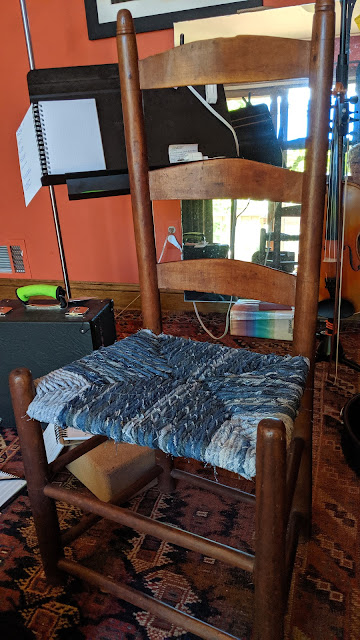Words: Who Needs 'Em, Anyway?
 A fascinating episode of Radiolab is called Words. The question examined is: what do words do for us, and can we live without them?
A fascinating episode of Radiolab is called Words. The question examined is: what do words do for us, and can we live without them?Most mindfulness and meditation practice focuses on the benefits of stilling the constant chatter of the mind, and yet anyone who has tried knows that this doesn't come easily! My brain gushes words at all times. Even as I go to sleep, nonsensical phrases blurt into my brain. What would life be without this constant flow of comparisons, associations, self-criticism, self-adulation, fears and anticipation? I'm sure that without words I would be more invested in the present moment, more able to relax and interact with people around me.
I was therefore fascinated by two stories in the show that are about people who had the experience of being without language. The first is a deaf man who had never learned sign language, or any kind of language for that matter, until the age of 27. Until he was an adult he had never known that a symbol (i.e. a word) could represent a thing or an idea. Much later, after he was able to sign and communicate well, his biographer, Susan Schaller, wanted to know "what was going on in his head" before he had words. When she asked him he would avoid answering, or he would just say that it was a dark time in his life and he didn't want to talk about it. The closest she ever got to an answer was, "I don't remember. I think differently now."
In complete contrast is the story of Jill Bolte Taylor, brain researcher and author of My Stroke of Insight. Because of her training in brain science she had a unique perspective when she herself had a stroke. She describes what happened as the stroke gradually took its course and part of her brain's left hemisphere shut down. In one moment, she says, "my brain chatter went totally silent. Just like someone took a remote control and pushed the mute button. So here I am in this space and my job and any stress related to my to my job it was gone and I felt lighter in my body."
When she regained consciousness in the emergency room she was totally languageless. She says, "I had found a peace inside of myself that I had not known before. I had pure silence inside of my mind." Lying in bed she felt connected to everything in a way she never had before, with no difference between herself and the external world. When asked how much of this is about language, she says, "A lot:
"Language is an ongoing information processing. It's that constant reminder: I am. This is my name, this is all the data related to me, these are my likes and my dislikes, these are my beliefs, I am an individual. I'm a single. I am a solid. I'm separate from you."
Bolte Taylor's experience sounds much more like the one that seekers of "enlightenment" are hoping for. But how, then, to explain the experience of the man who had never had language? Perhaps it's about having language and then losing it, versus never having it at all. Research seems to be finding that language itself gives us the ability to make certain mental connections, and to engage in new types of thinking.
There's lots more about this in the Radiolab program, and I invite you to explore it. And, as for the constant chatter filling the space between my ears, well, I'm going to work on having a less adversarial relationship with it.



Comments
Post a Comment